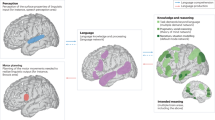Abstract
According to evolutionary theories, markets may foster an internalized and universalist prosociality because it supports market-based cooperation. This paper uses the cultural folklore of 943 pre-industrial ethnolinguistic groups to show that a society’s degree of market interactions, proxied by the presence of intercommunity trade and money, is associated with the cultural salience of (1) prosocial behaviour, (2) interpersonal trust, (3) universalist moral values and (4) moral emotions of guilt, shame and anger. To provide tentative evidence that a part of this correlation reflects a causal effect of market interactions, the analysis leverages both fine-grained geographic variation across neighbouring historical societies and plausibly exogenous variation in the presence of markets that arises through proximity to historical trade routes or the local degree of ecological diversity. The results suggest that the coevolutionary process involving markets and morality partly consists of economic markets shaping a moral system of a universalist and internalized prosociality.
This is a preview of subscription content, access via your institution
Access options
Access Nature and 54 other Nature Portfolio journals
Get Nature+, our best-value online-access subscription
$29.99 / 30 days
cancel any time
Subscribe to this journal
Receive 12 digital issues and online access to articles
$119.00 per year
only $9.92 per issue
Buy this article
- Purchase on Springer Link
- Instant access to full article PDF
Prices may be subject to local taxes which are calculated during checkout




Similar content being viewed by others
Data availability
All data used for this paper are available for download at https://doi.org/10.7910/DVN/EEGV7A. Source data are available at https://academic.oup.com/qje/article/136/4/1993/6124640.
Code availability
All code used for this paper are available for download at https://doi.org/10.7910/DVN/EEGV7A.
References
Bowles, S. & Gintis, H. in Genetic and Cultural Evolution of Cooperation (ed. Hammerstein, P.) 429–444 (MIT Press, 2003).
Henrich, J. et al. In search of homo economicus: behavioral experiments in 15 small-scale societies. Am. Econ. Rev. 91, 73–78 (2001).
Henrich, J. et al. ‘Economic man’ in cross-cultural perspective: behavioral experiments in 15 small-scale societies. Behav. Brain Sci. 28, 795–855 (2005).
Henrich, J. et al. Markets, religion, community size, and the evolution of fairness and punishment. Science 327, 1480–1484 (2010).
Ensminger, J. in Foundations of Human Sociality: Economic Experiments and Ethnographic Evidence from Fifteen Small-scale Societies (eds Henrich, J. et al.) 356–381 (Oxford Univ. Press, 2004).
Gintis, H., Bowles, S., Boyd, R. T. & Fehr, E. Moral Sentiments and Material Interests. The Foundations of Cooperation in Economic Life Vol. 6 (MIT Press, 2005).
Boyd, R. & Richerson, P. J. Culture and the evolution of human cooperation. Phil. Trans. R. Soc. B 364, 3281–3288 (2009).
Haidt, J. The Righteous Mind. Why Good People are Divided by Politics and Religion (Vintage, 2012).
Tomasello, M. A Natural History of Human Morality (Harvard Univ. Press, 2016).
Henrich, J. & Muthukrishna, M. The origins and psychology of human cooperation. Annu. Rev. Psychol. 72, 207–240 (2021).
Tabellini, G. The scope of cooperation: values and incentives. Q. J. Econ. 123, 905–950 (2008).
de Montesquieu, C. Montesquieu. The Spirit of the Laws (Cambridge Univ. Press, 1989).
Baldassarri, D. Market integration accounts for local variation in generalized altruism in a nationwide lost-letter experiment. Proc. Natl Acad. Sci. USA 117, 2858–2863 (2020).
Fiske, A. P. The four elementary forms of sociality: framework for a unified theory of social relations. Psychol. Rev. 99, 689–723 (1992).
Greene, J. & Haidt, J. How (and where) does moral judgment work? Trends Cogn. Sci. 6, 517–523 (2002).
Rai, T. S. & Fiske, A. P. Moral psychology is relationship regulation: moral motives for unity, hierarchy, equality, and proportionality. Psychol. Rev. 118, 57–75 (2011).
Graham, J. et al. Mapping the moral domain. J. Pers. Soc. Psychol. 101, 366–385 (2011).
Greene, J. Moral Tribes: Emotion, Reason and the Gap Between Us and Them (Atlantic Books, 2014).
Michalopoulos, S. & Xue, M. M. Folklore. Q. J. Econ. 136, 1993–2046 (2021).
Shiller, R. J. Narrative economics. Am. Econ. Rev. 107, 967–1004 (2017).
Smith, D. et al. Cooperation and the evolution of hunter-gatherer storytelling. Nat. Commun. 8, 1–9 (2017).
Berezkin, Y. E. Folklore and Mythology Catalogue: Its Lay-out and Potential for Research 58–70 (The Retrospective Methods Network, 2015).
Becker, R. A., Wilks, A. R., Brownrigg, R., Minka, T. P. & Deckmyn, A. maps: Draw Geographical Maps. R Package version 3.4.0 https://CRAN.R-project.org/package=maps (2021).
Shweder, R. A., Much, N. C., Mahapatra, M. & Park, L. in Morality and Health (eds Brandt, A. M. & Rozin, P.) 119–169 (Taylor & Frances/Routledge, 1997).
Haidt, J. in Handbook of Affective Sciences (eds Davidson, R. J. et al.) 852–870 (Oxford Univ. Press, 2003).
Norenzayan, A. Big Gods: How Religion Transformed Cooperation and Conflict (Princeton Univ. Press, 2013).
Norenzayan, A. et al. The cultural evolution of prosocial religions. Behav. Brain Sci. 39, e1 (2016).
Michalopoulos, S. & Papaioannou, E. Pre-colonial ethnic institutions and contemporary African development. Econometrica 81, 113–152 (2013).
Bates, R. H. Essays on the Political Economy of Rural Africa Vol. 38 (Univ. of California Press, 1987).
Fenske, J. Ecology, trade, and states in pre-colonial Africa. J. Eur. Econ. Assoc. 12, 612–640 (2014).
Michalopoulos, S., Naghavi, A. & Prarolo, G. Trade and geography in the spread of Islam. Econ. J. 128, 3210–3241 (2018).
Voigtländer, N. & Voth, H.-J. Persecution perpetuated: the medieval origins of anti-semitic violence in Nazi Germany. Q. J. Econ. 127, 1339–1392 (2012).
Enke, B. Moral values and voting. J. Polit. Econ. 128, 3679–3729 (2020).
Enke, B., Rodríguez-Padilla, R. & Zimmermann, F. Moral Universalism and the Structure of Ideology (National Bureau of Economic Research, 2020).
Acknowledgements
I thank J. Henrich and N. Nunn for useful discussions and feedback. I received no specific funding for this work.
Author information
Authors and Affiliations
Contributions
B.E. designed the research, analysed data and wrote the paper.
Corresponding author
Ethics declarations
Competing interests
The author declares no competing interests.
Peer review
Peer review information
Nature Human Behaviour thanks the anonymous reviewers for their contribution to the peer review of this work.
Additional information
Publisher’s note Springer Nature remains neutral with regard to jurisdictional claims in published maps and institutional affiliations.
Supplementary information
Supplementary Information
Supplementary Figs. 1–3 and Tables 1–15.
Rights and permissions
Springer Nature or its licensor (e.g. a society or other partner) holds exclusive rights to this article under a publishing agreement with the author(s) or other rightsholder(s); author self-archiving of the accepted manuscript version of this article is solely governed by the terms of such publishing agreement and applicable law.
About this article
Cite this article
Enke, B. Market exposure and human morality. Nat Hum Behav 7, 134–141 (2023). https://doi.org/10.1038/s41562-022-01480-x
Received:
Accepted:
Published:
Issue Date:
DOI: https://doi.org/10.1038/s41562-022-01480-x
This article is cited by
-
Between Markets, Politics, and Ethics: On Vendor Conscience and Impersonal Markets
Journal of Business Ethics (2023)



